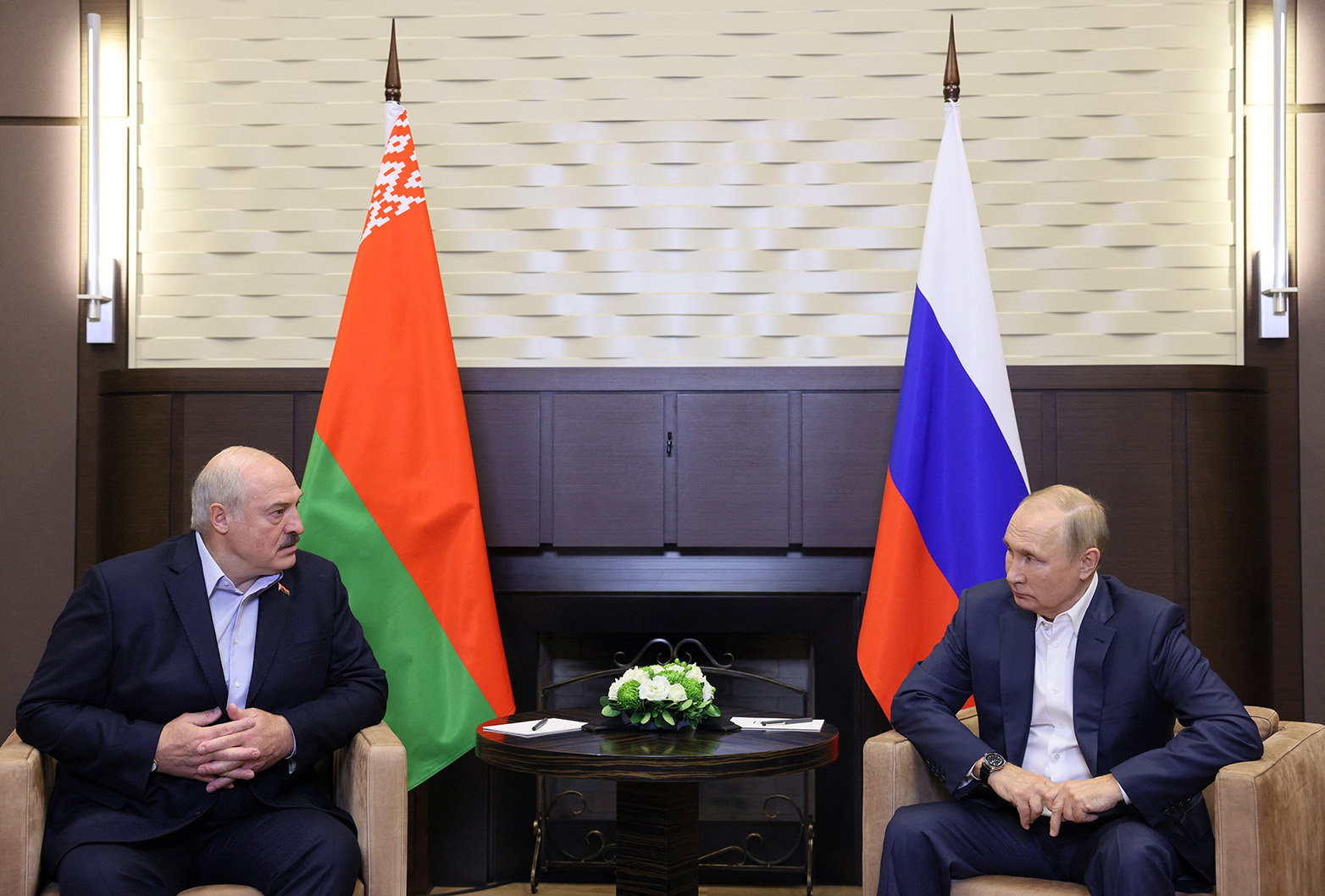Minsk’s Signals: Belarus and the War in Ukraine
Russian troops have launched attacks on Ukraine from Belarus. The Lukashenka regime is Putin’s closest ally, but their interests diverge. It is thus key to differentiate and read the erratic actions and rhetoric from Minsk as signals towards east, West, and south, argues Benno Zogg in this CSS Policy Perspective.

Russian President Vladimir Putin attends a meeting with his Belarusian counterpart Alexander Lukashenka in Sochi, Russia September 26, 2022. Sputnik/Gavriil Grigorov/Pool via REUTERS
Key Points
- Belarus has been an important supporter of Russia’s war against Ukraine, is used as a launching pad for attacks, and has seen its sovereignty severely diminished. However, it will most likely refrain from committing its own troops to the war.
- Lukashenka’s preferences for the war in Ukraine are different from the Kremlin’s and the Belarusian population’s. Highlighting this distinction, a Russian victory would have been the worst outcome for all camps in Belarus.
- Actions and rhetoric from Minsk are often contradictory, at times reassuring and at other times angering Moscow. They should be understood less for their content and more as signals toward particular audiences – including the West and Kyiv.
- Nuance is key to comprehend Belarus’ position and options for reacting to it and can prepare observers and policymakers for a time after the war in Ukraine and for the post-Lukashenka era.